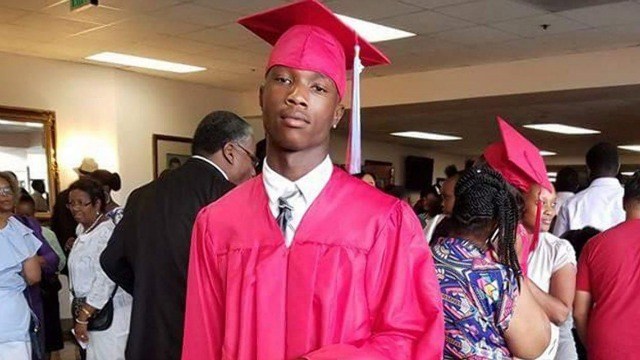
It’s with a heavy heart that I open this edition of the monthly news round-up with tragic news:
- In Dallas, Texas, LeDajrick Cox, who just graduated from high school, and two male friends and a female friend were out celebrating. In a 7-11 parking lot, three men in another car started street harassing their female friend, and Cox intervened to defend her. Eventually, Cox and his friends left but the three men followed them and shot into the car. Cox and the two other young men were all injured and Cox died from his injuries. A young life is needlessly over. I applaud him for doing the right thing and am so saddened he is dead.
- In Portland, Oregon, a white supremacist began harassing two young women on a train, using anti-Muslim slurs. One woman was wearing hijab. When three men intervened to help the young women, the man attacked, killing two of them and injuring one. Again this is just unbelievably horrific and sad. There have been many news stories about the tragedy and praise given to the three men. I glad they intervened but feel so saddened that for two of them, it cost them their lives. That never should have happened.
- In College Park, Maryland, a white supremacist seemingly randomly stabbed and killed a recent African American college graduate near the University of Maryland campus.
- In Manchester, UK, a suicide bomber attacked an Ariana Grande concert that was mainly attended by teenage and tween-age girls. More than 20 people died and even more were injured.
Everyone should be safe in public spaces, and clearly we have a long, long ways to go until that will occur. I hope these stories don’t deter people from speaking out and helping people facing harassment and I hope that those who have committed these crimes face consequences and that perhaps those consequences will deter others from doing the same.
Here are highlights of other news from around the world this month:
The first mandatory legal mediation in the first ever street sexual harassment case in the country took place in Buenos Aires, Argentina.
A woman in Adelaide, Australia, wrote about being scared to walk the streets of her own town after dark.
A study found that 23% of female commuters in Dhaka, Bangladesh, faces sexual harassment on the buses.
Men in Egypt are working with other men to discuss their role and actions as bystanders, perpetrators and victims of violence, including street harassment.
Outraged women in an eastern Parisian district of France staged demonstrations and launched an online petition over a “male den” where women are subject to harassment and sexist remarks.
A woman in Hong Kong spoke out against people who victim-blame women facing street harassment.
In India, the Alwar police formed an all-women team to crack down on people harassing women and girls on city streets.
School girls in India went on a hunger strike to protest the men who harassed them on their way to and from school and the lack of action by local officials to stop them.
In an informal survey conducted in Myanmar, more than 80% of women had faced street harassment.
Three women’s groups urged Panamanian President Juan Carlos Varela Monday to sign a bill meant to prohibit and punish sexual harassment, stalking, sexism and racism in all areas.
The penalty for taking non-consensual upskirt photos increased in Thailand.
In the UK, a bar posted a sign to deter male customers from harassing the female bartender.
A new report from Harvard Graduate School of Education found that 87% of women in the U.S. have faced sexual harassment. Among 18 to 25 year olds, most said they had faced sexual harassment, including 41% saying a stranger had touched them without permission.
Prior to the Lightning in a Bottle music festival in Los Angeles (USA), there was a class offered for fans and staff about sexual harassment at festivals, “Creating Safer-Braver Spaces: Consent Culture & Social Care”.
Most U.S. cities were designed around men and it’s time for that to change.
In the U.S., Feminista Jones began responding to strange men who “complimented” her by agreeing… and then the men get mad. She said in an interview:
“For a man to be comfortable sending an unsolicited comment about your body via text or Tinder or Bumble or whatever, or to feel comfortable yelling some shit at you on the sidewalk, he has to feel — at least in some small way — like you exist for him. If you take those compliments in stride instead of blushing and cooing and being the Good Modest Woman he hopes your mother raised you to be, you’re proving you don’t exist for him at all. Your “great body” belongs to you, and of course that’s gonna piss this exact type of dude off.”

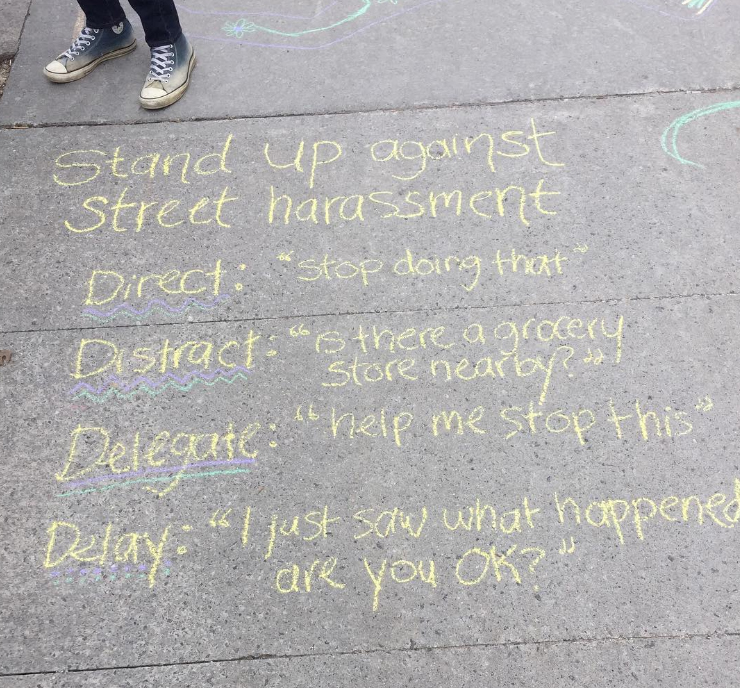
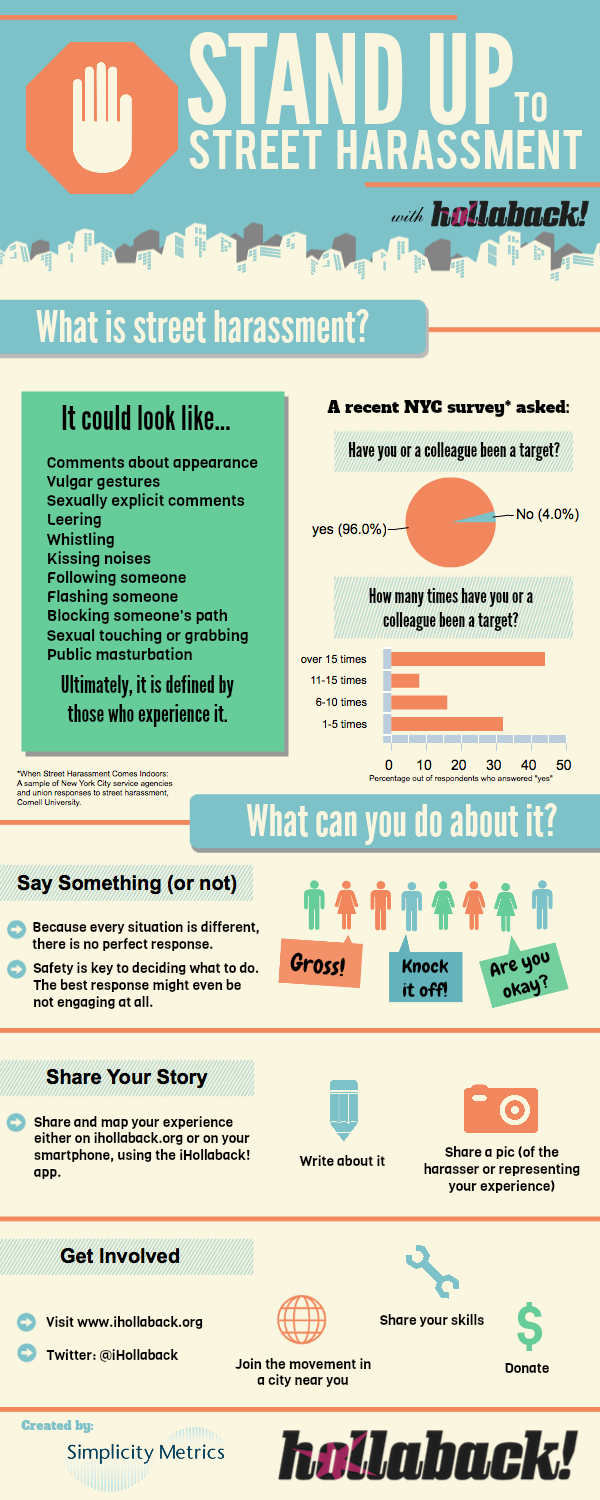 By Sofia DiPasquale
By Sofia DiPasquale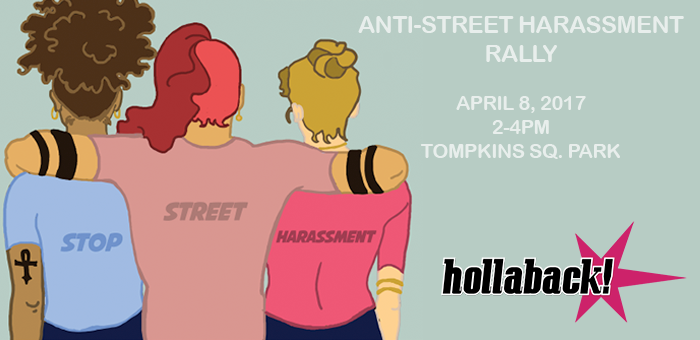
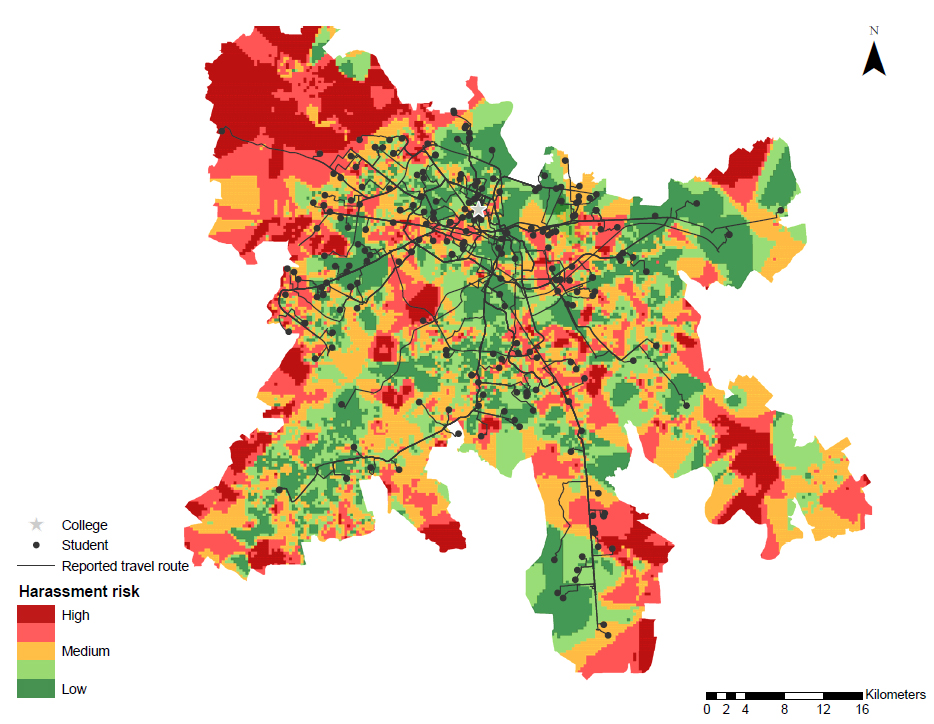
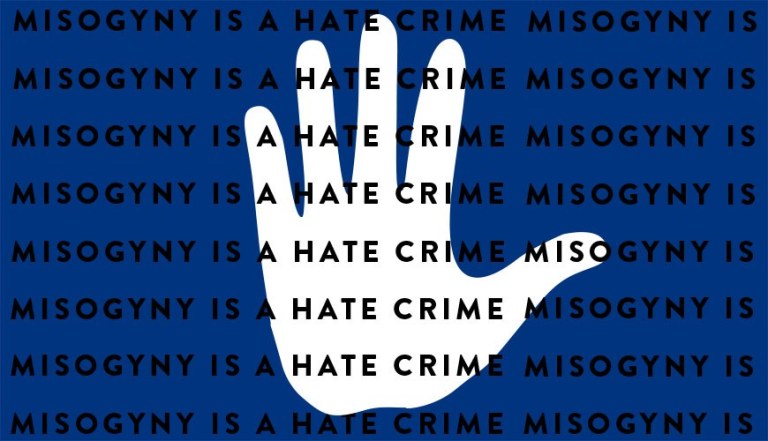 My name is China Fish and like many women, I have experienced frequent and unwanted sexual harassment as I walk our city streets. In 2010 I created a satirical performance about this very subject called ‘Lucky Saddle’, two words shouted at me by a man as I cycled in Bedminster when I was around 21 years old. It is an issue close to my heart, as, like most humans, I desire to be able to move freely and safely through the world I inhabit.
My name is China Fish and like many women, I have experienced frequent and unwanted sexual harassment as I walk our city streets. In 2010 I created a satirical performance about this very subject called ‘Lucky Saddle’, two words shouted at me by a man as I cycled in Bedminster when I was around 21 years old. It is an issue close to my heart, as, like most humans, I desire to be able to move freely and safely through the world I inhabit.
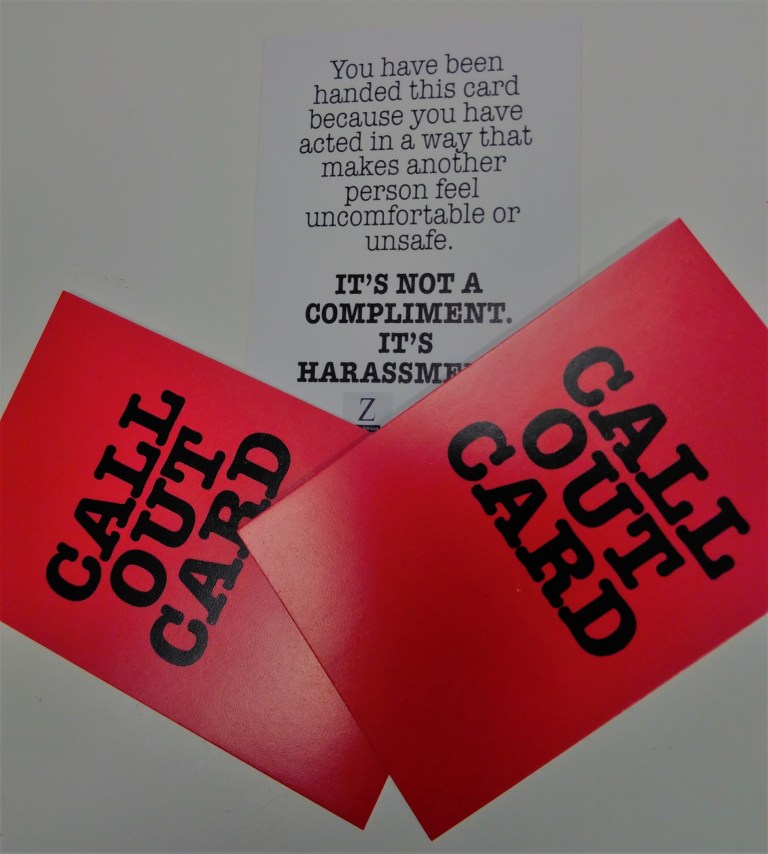 Take action in Bristol!
Take action in Bristol!